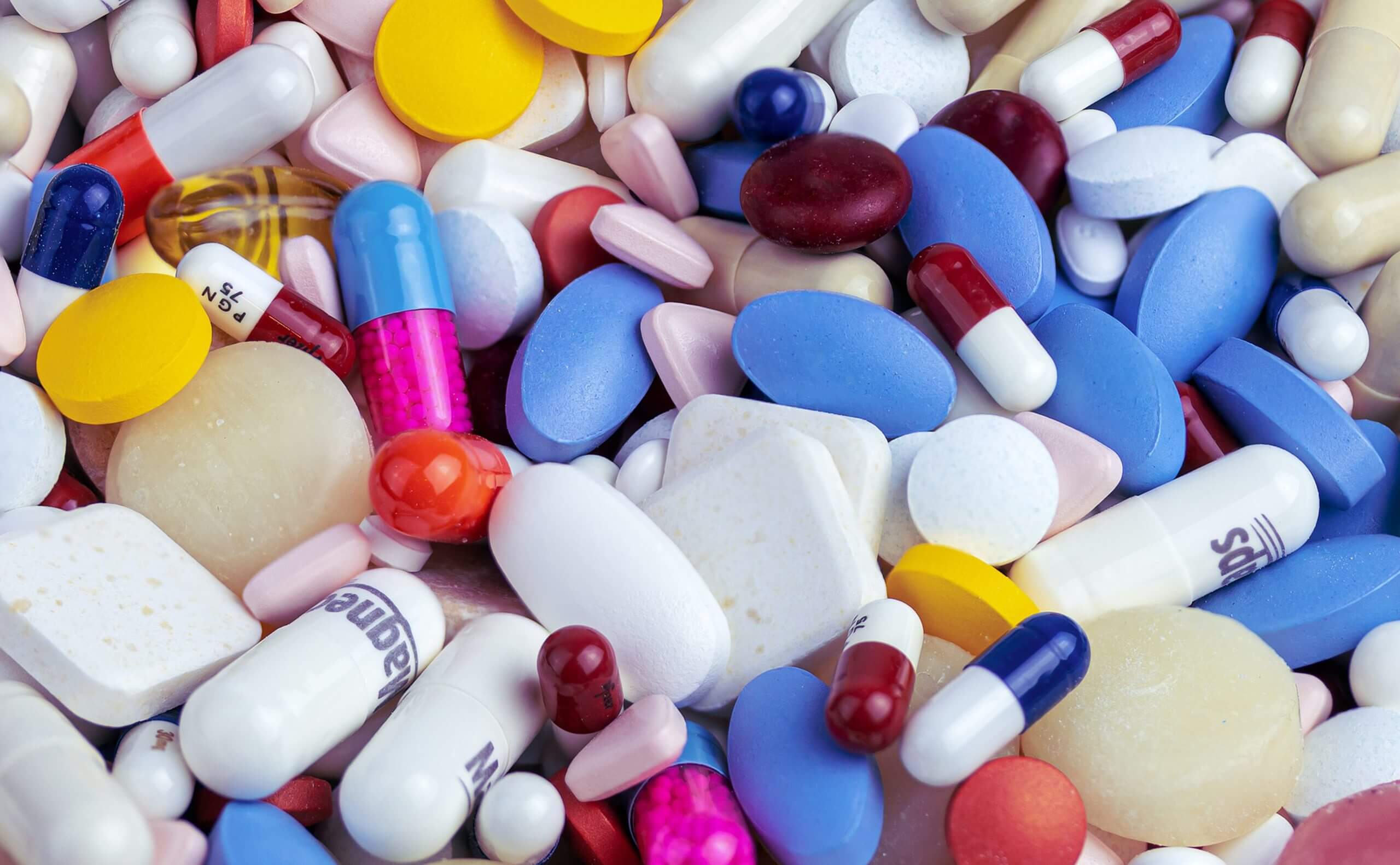While there are some drugs that may be prescribed for medicinal purposes, others can be taken illegally for their narcotic or stimulant effects which can become addictive. Drug addiction is a serious and potentially fatal disease that is complex and can be difficult to overcome, especially for those using the most abused drugs in the country.
Most Abused Drugs
According to the National Institute on Drug Abuse, the most commonly abused drugs are: tobacco (nicotine), alcohol, cannabinoids (marijuana and hashish), prescription medications (opioids), over-the-counter (OTC) medications (dexomethorphan, loperamide), hallucinogens, steroids, stimulants, and club drugs. Below is a brief description of these commonly abused drugs.
Tobacco
- According to the Centers of Disease Control (CDC) it is estimated that in 2019, 14.0% of all adults (34.1 million people) currently smoked cigarettes, with 15.3% being male and 12.7% being female. While nicotine addiction may not appear as harmful as some other addictions, tobacco use claims more lives than any other addictive substance. Cigarette smoking remains the leading cause of preventable disease, disability and death in the US and costs the US billions of dollars each year. Many smokers are unable to quit smoking, despite knowing the potential consequences on their health. In 2015, nearly 7 in 10 (68%) of adult cigarette smokers wanted to stop smoking and in 2018, more than half of adult cigarette smokers reported that they stopped smoking for at least 2 days because they were actively trying to quit. Unfortunately, based on the same research, only 7.5% of people who tried to quit succeeded in 2018.
Alcohol
- According to the National Institute on Alcohol Abuse and Alcoholism (NIAAA), more than 85% of adults over the age of 18 reported having tried alcohol in their lifetime. In 2019, more than 25% of adults over the age of 18 reported that they had engaged in binge drinking (defined as a pattern of drinking that brings blood alcohol concentration levels to 0.08 g/dL – typically after 4 drinks for women and 5 drinks for men—consumed within 2 hours.) Alcohol is the most commonly abused substance and because of the social acceptance of drinking it can make alcoholism difficult to identify initially. Alcohol abuse has many negative consequences, with an estimated 95,000 people dying from an alcohol related cause annually, making it the third leading preventable cause of death in the US. 31% of all driving related fatalities are related to alcohol impairment.
Cannabinoids (Marijuana, Hashish)
- Marijuana is a psychoactive drug that contains tetrahydrocannabinol (THC), which is the chemical compound that causes the drug’s effects of altering perception. The effects of marijuana may be different for everyone and depend on how it is consumed. According to the CDC, approximately 1 in every 10 marijuana users can become addicted and if the use started before age 18, the risk is 1 in every 6 users becoming addicted. The legality of marijuana varies depending on state laws and there are medicinal uses for marijuana, although it has not yet gained FDA approval except in the case of synthetic THC drugs used to treat chemotherapy induced nausea and as a way to increase appetite in AIDS patients.
- Some signs that a person might be addicted to marijuana include trying to quit but being unable to, giving up important activities in order to use marijuana and using marijuana even when it is causing problems at home, school, and work. Other signs include problems with attention, memory and learning.
Opioids
- Opioid medications are commonly prescribed for pain and can have an analgesic and relaxant effect. Prescription opioids are often used to treat moderate to severe pain, coughing and some forms of diarrhea. Opioids are commonly abused because they can also make people feel very relaxed and high in the short term. However, in the long-term, opioids are also highly addictive and can also cause drowsiness, confusion, and slowed breathing which can lead to hypoxia.
- Heroin is one of the most abused drugs and not used for medicinal purposes but it can produce a similar high because it is chemically similar. Unfortunately, in many cases heroin is cheaper and easier to acquire than opioids to people switch to using heroin instead.
- Fentanyl is a potent synthetic opioid that is similar to but 50-100 times stronger than morphine. It is also prescribed for severe pain, especially post-op however has now commonly been involved in overdose deaths in the US. Some drug dealers mix fentanyl with other drugs like cocaine, heroin, methamphetamine and MDMA, since it produces a high easily so it makes it cheaper to produce the drugs. This has a dangerous impact on users because if they do not realize their drugs have fentanyl, they may take higher doses than their body is capable of handling, thus causing overdose.
Over-the-counter medications
- Two commonly abused OTC medications are dextromethorphan (DXM) which is a cough suppressant and loperamide which is a diarrhea medication. When taken in high doses, DXM can have a depressant and hallucinogenic effect and mimic alcohol or marijuana intoxication. Loperamide can act similarly to opioids and can have euphoric effects when taken in large quantities. While it might not seem like it, these two pharmacy drugs are some of the most abused drugs.
Hallucinogens
- Hallucinogens have been used historically for religious rituals and are often found in plants and mushrooms. There are two broad categories of hallucinogens: classic and disassociative. The classic hallucinogens include: Ayahuasca which has DMT, or dimethyltryptamine which can also be human made, LSD which is a powerful mood altering drug, Peyote which can be found in a cactus or synthetic, and psilocybin which can be found in some mushrooms. The disassociative hallucinogens can have an “out of body” effect and include: Ketamine, which is also used as a surgery anesthetic, PCP, which was first developed for anesthetic purposes and Salvia which is found in a plant.
Stimulants
- Stimulants such as methylphenidate (Ritalin, Concerta) and amphetamines (Adderall, Dexedrine) are often prescribed to treat attention-deficit hyperactivity disorder (ADHD) as well as narcolepsy. These medications have a stimulating effect on certain neurotransmitters that can lead to a euphoric feeling and increase alertness, attention and energy. At high doses though, this can also lead to dangerously high body temperatures, heart arrhythmia, heart failure, seizures. Misusing or abusing stimulants can also have a psychosis effect, anger and paranoia in some.
Depressants
- Depressants are medications that can be used to treat anxiety, panic, acute stress reactions and certain sleep disorders. These include sedatives, tranquilizers and hypnotics which can lead to drowsiness, slurred speech, poor concentration, problems with movement and memory as well as low blood pressure and slowed breathing.
Inhalants
- Inhalants are commonly found in the home and workplace. They often contain potent substances that have mind-altering effects when inhaled. While many do not use them initially for the purpose of getting high, even inadvertently sniffing these products can be extremely toxic.
Drug Rehab in Florida
Regardless of the type of drug you or your loved one may be struggling with, at Genesis House, addiction treatment specialists are able to work with you or your loved one to assess your situation and determine an individualized treatment plan that will suit your needs. A professional will be able to take a thorough substance use history and determine if drug or alcohol treatment is recommended and the best therapeutic course of action is warranted.







